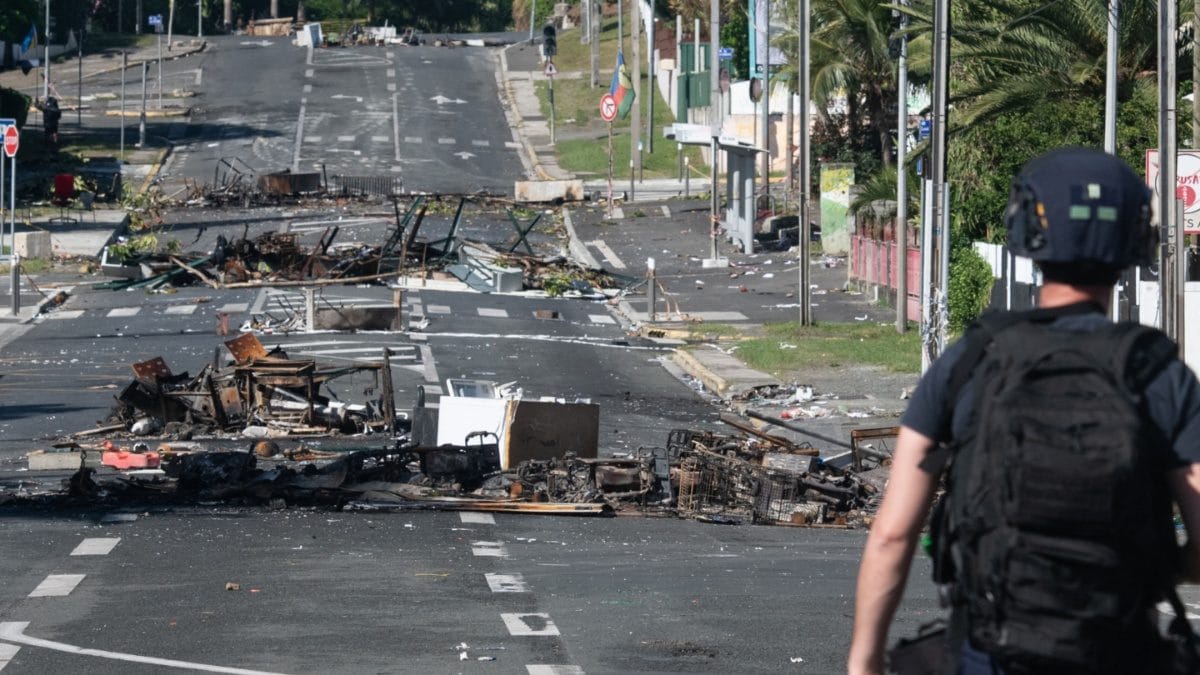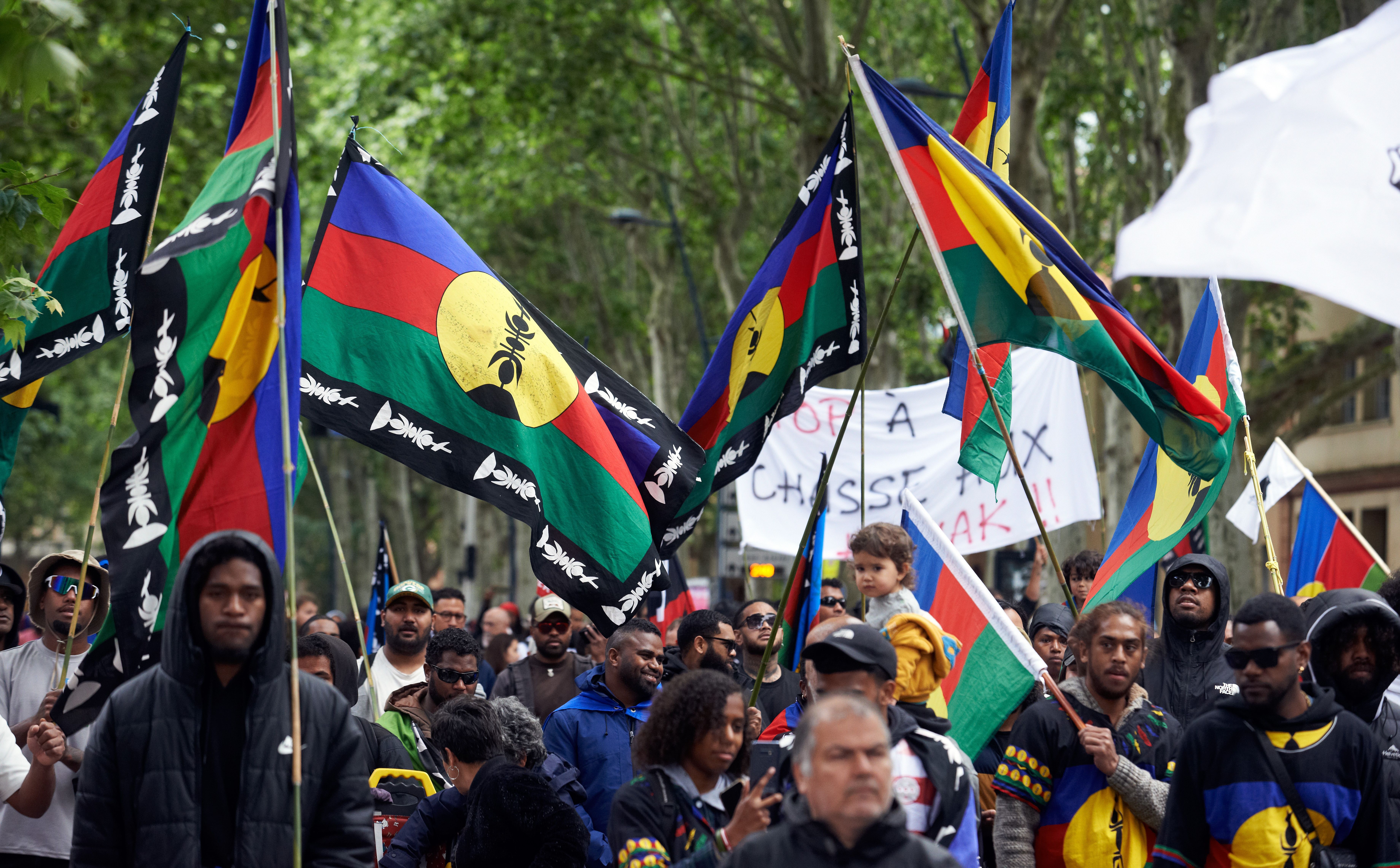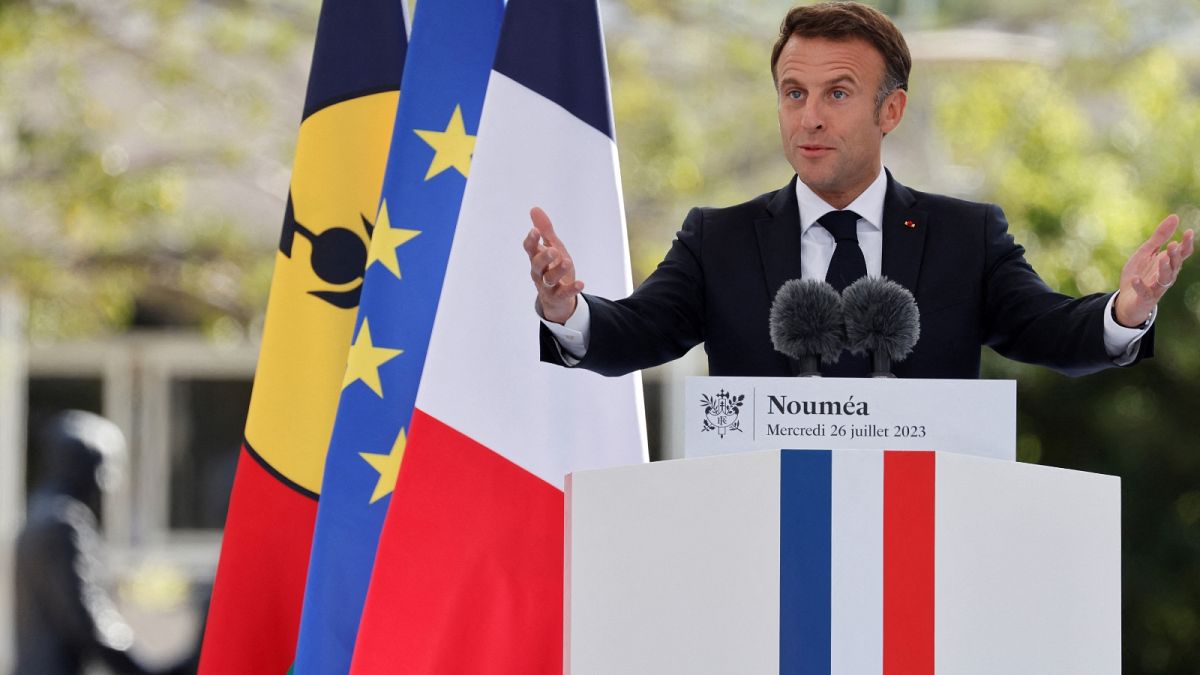French President will travel to the Pacific island of New Caledonia on Tuesday, just over a week after riots erupted in the French oversees territory leaving six dead and hundreds injured.
French president Emanuel Macron will land in New Caledonia on Tuesday to restore peace and order in the riot hit French territory. A dark cloud hovering over the Pacific island after cars and buildings were set ablaze has triggered French authorities into action. A state of emergency and curfew remain in place, with army reinforcements. The unrest over plans for an electoral overhaul has resulted in dozens of shops and businesses being looted and burned, with cars torched and road barricades set up.
Soon after riots in the region proliferated, evacuation strategies were set in line to bring people back to safety. On Tuesday Australia and New Zealand sent planes to evacuate some of the estimated 3,000 tourists thought to be in New Caledonia, where the main airport is closed to commercial flights. People were airlifted and later reunited with their families, where they narrated the horror they had just witnessed. Among the many who were evacuated were French nationals who were forced to sail to safety in Australia, “We’re really torn,” said one French couple.
Torched out cars were seen in New Caledonia’s capital, Noumea, amid growing unrest and demands for decolonization of the Pacific island. Protests and clashes with the police started when the French parliament passed a bill expanding voting rights for its citizens residing on the island which France has ruled since the mid-19th century. The Indigenous Kanak people fear the bill will dilute their political influence and separatists believe it will thwart independence aspirations.

A Quick Peek into New Caledonia’s History of Riots
The riots in New Caledonia began last week as politicians in Paris voted on a bill to allow French residents who have lived in New Caledonia for 10 years the right to vote in provisional elections. Some local leaders fear this change would dilute the share of the vote held by Kanaks, the Indigenous group that makes up 41% of the population and the major force in pro-independence movement.
Located in the warm waters of the South-West Pacific, 930 miles East of Australia, New Caledonia is home to 270,000 people, 41% of whom are Melanesian Kanaks and 24% of European origin, mostly French. The archipelago was named by the British Explorer Captain James Cook in 1774. It was annexed by France in 1853 and was used as a penal colony until shortly before the turn of the 20th century.
New Caledonia, one of five island territories spanning the Indo Pacific held by France, is central to Emmanuel Macron’s plan to increase influence in the Pacific. The world’s number 3 nickel producer, New Caledonia lies at the heart of the geopolitically complex maritime regime, where China and the US are jostling for power and influence in security and trade. After France’s colonization in the 19th century, New Caledonia officially became a French oversees territory in 1946. Starting in the 1970s, after a nickel boom that drew outsiders, tensions rose on the island, with various riots between Paris and Kanak independence movements.
In 1998, Noumea accord helped end the riots by outlining a path to gradual autonomy and restricting vote to the Kanak and migrants living in New Caledonia before 1998. The measure was aimed at giving greater representation to the Kanaks, who had become a minority population. Paris has come to see this arrangement as “undemocratic”, and lawmakers approved a constitutional amendment to open up the electorate to include people who have lived in New Caledonia for at least 10 years.
Emanuel Macron has said he would delay stamping it into a law, and invite representatives of the territory’s population to Paris for talks to reach a negotiated settlement. However, he said a new agreement must be reached by June or he would sign it into law.

Ban on TikTok in New Caledonia
France’s highest administrative court was on Tuesday examining complaints by two rights groups and three citizens in New Caledonia over France’s unprecedented decision to shut down the social media platform TikTok on the Pacific island last Wednesday. Under the state of emergency, people on the island have been unable to access Chinese-owned social media platform since May 15, when the French state ordered it to shut down. The government believe the app was being used by those opposed to French rule to communicate and organize riots.
France’s League for Human Rights and the French NGO, which campaigns on data and privacy issues, have a brought a fast track case to France’s highest administrative court to overturn the ban, warning it is the first time a European democracy has shut down a social media platform. The group that took the matter to the court have illustrated the shutting down of TikTok, “an unprecedented and particularly serious blow to the freedom of expression online.” The group said, “neither the local context nor the toxicity of the platform can justify the shutdown by a regime claiming to abide by the rule of law.”
At least six people have died in the protests, which has prompted authorities to shut the international airport, schools and impose a curfew in the capital, Noumea, where businesses and vehicles have been set alight. France has launched a major security operation in a bid to quell the violence caused by deadly riots. New Caledonia is not the first in recent memory to use force to express dissent over government legislation, Georgia is walking on the same path.
New Caledonia has been rocked for several days by riots that have so far claimed six lives. This uprising is a result of repeated provocations by the French Imperialist government. In 2022, after Macron forced through a referendum on independence in spite of his promises to the contrary is bound to resurface sooner or later. Since then, the government has pushed ahead with a process of electoral reform that constitutes a significant provocation for the Kanaks.












